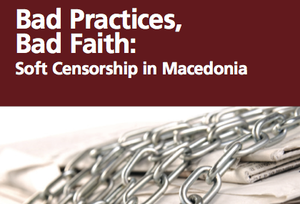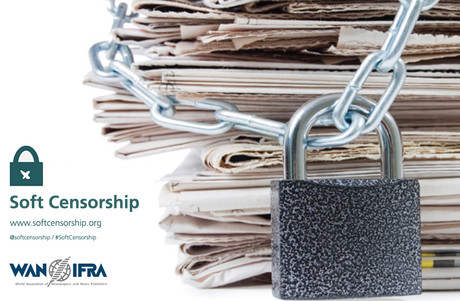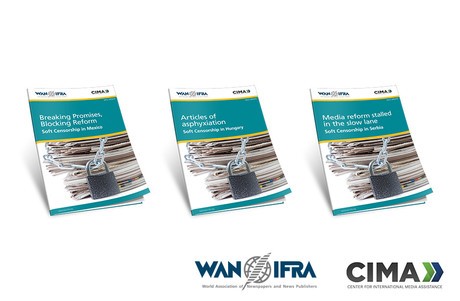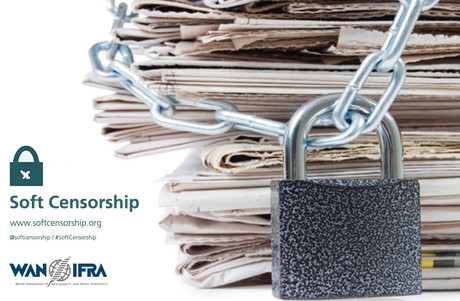“Bad Practices, Bad Faith: Soft Censorship in Macedonia” outlines how financial incentives and partisan influence are increasing in the country. The ubiquity of such practices diminishes the credibility and independence of media and is curtailing the essential role the press has in fostering democratic development by reducing the space for public discussion and debate..
The new report is available to download below.
Extensive interviews with media experts, editors and journalists in the country reveal that pluralism and independent editorial perspectives represented in Macedonia’s media have drastically decreased. The report outlines how this decline coincided with the rise to power of the current ruling party in 2006, and has accelerated with its efforts to dominate the country’s media space through new laws and increasingly partisan use of state resources to support ‘friendly’ media outlets.
Official soft censorship, or indirect censorship, is defined as “an array of official actions intended to influence media output, short of legal or extra-legal bans, direct censorship of specific content, or physical attacks on media outlets or media practitioners.”
The financial realities of Macedonia’s small media market force many media outlets to depend on state funding to remain financially viable. Government-friendly media are bolstered by various means, particularly with the allocation of official funds, advertising, campaigns, and subsidised projects. This generates an environment in which partisan political and business interests set the media agenda and can directly shape reporting.
“As demonstrated through our previous investigations, research in Macedonia shows that harsher, more overt methods of media control are shifting towards subtler yet still very powerful tools associated with soft censorship practices,” said Andrew Heslop, WAN-IFRA Press Freedom director. “Independent media outlets struggle for survival through increasingly restricted advertising revenues, a daunting prospect for hopes of a sustainable future in a market the size of Macedonia.”
The report recommends action to reverse the erosion of media freedom in the country. All state funding for media outlets, including advertising, grants and other subsidies should be entirely transparent and allocated through fair processes supervised by independent bodies and institutions.
Equally, legal and institutional guarantees on freedom of expression compatible with EU standards must be fully implemented in law and respected in practice.
The full report can be downloaded for free below.
Through detailed research into soft censorship practices globally, WAN-IFRA and CIMA are drawing attention to the kinds of widespread and deleterious problems facing independent media that rarely generate the same level of international outrage as direct attacks on the press. The findings and recommendations of the soft censorship research series aim to contribute to the implementation of fair and transparent rules that are necessary for the development of independent media sectors around the world.
A country report detailing soft censorship practices in Bulgaria will be published in January 2016.
WAN-IFRA also collects and regularly publishes updated information on the misuse of financial and administrative powers to manipulate reporting, which can be found - together with the soft censorship report series – online at www.softcensorship.org and on the Twitter feed @SoftCensorship. All materials are free to download and share.
WAN-IFRA, based in Paris, France, and Frankfurt, Germany, with subsidiaries in Singapore and India, is the global organisation of the world’s newspapers and news publishers. It represents more than 18,000 publications, 15,000 online sites and over 3,000 companies in more than 120 countries. Its core mission is to defend and promote press freedom, quality journalism and editorial integrity and the development of prosperous businesses.
For more information on WAN-IFRA’s press freedom activities, visit http://www.wan-ifra.org/pressfreedom
The Center for International Media Assistance (CIMA), based in Washington, D.C., raises the visibility and improves the effectiveness of media development around the world. The Center provides information, builds networks, conducts research, and highlights the indispensable role media play in the creation and development of sustainable democracies. See more at: http://cima.ned.org








